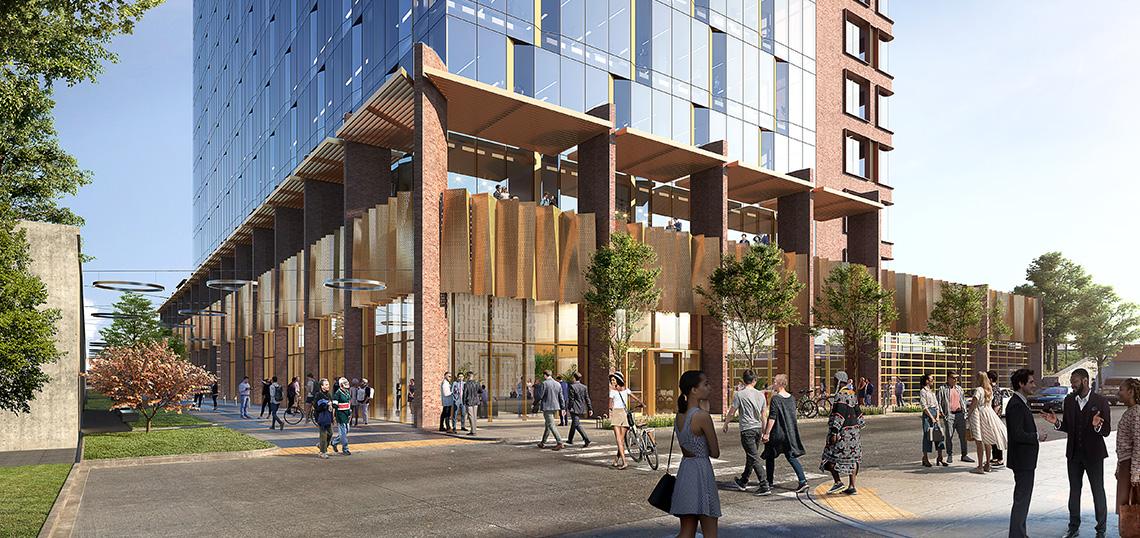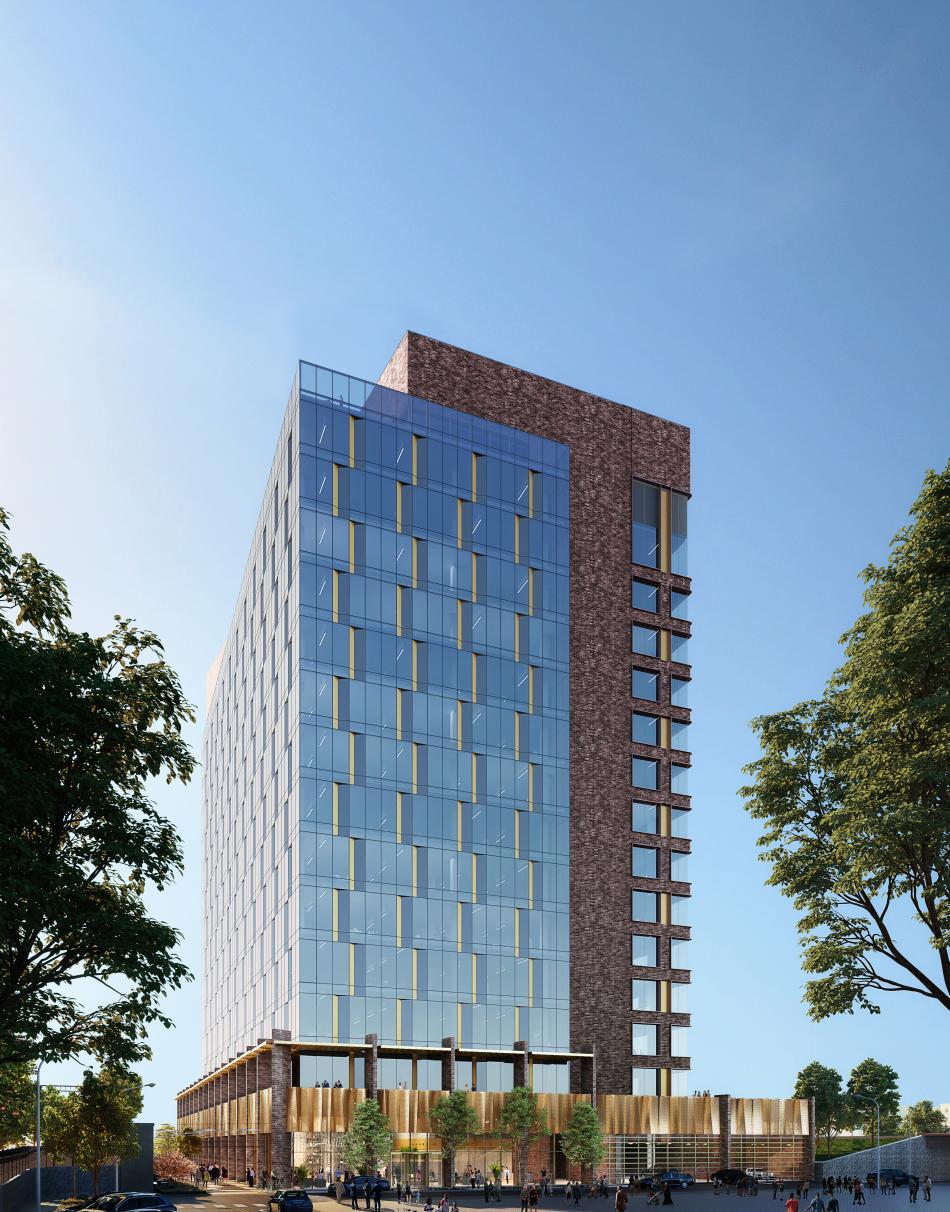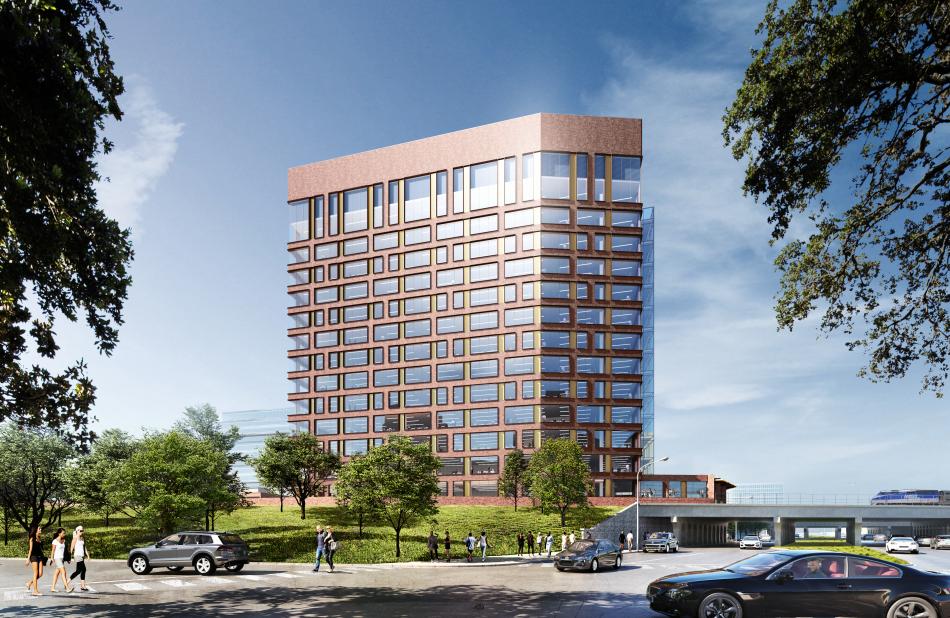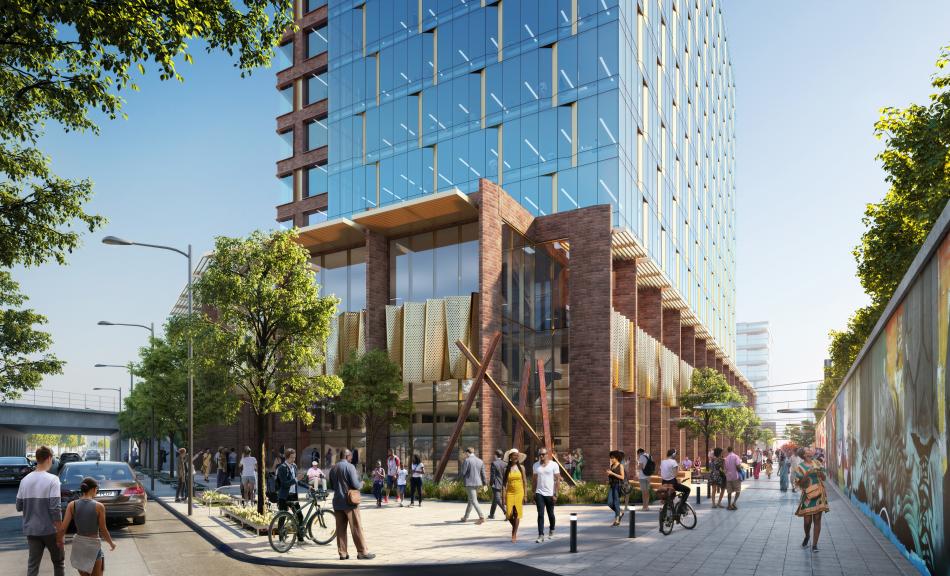Mark Goodman & Associates announced it has closed on the acquisition of an approximately 1.5-acre parcel of land at 400 N. Elizabeth St. in Fulton Market. Fronting N. Elizabeth St, the irregularly shaped lot is bound by W. Ogden Ave to the west, N. Elizabeth St to the east, and Metra rail tracks to the north and south. The vacated portion of W. Kinzie St runs along the southern edge of the property.
Designed by Solomon Cordwell Buenz to be a low embodied carbon building that is both LEED Gold and WELL certified, 400 N. Elizabeth will be the first purpose-built lab and research and development building in Chicago designed to specifically accommodate the rapidly growing life sciences and biotechnology industry. The building will offer approximately 503,000 square feet of laboratory, office and research & development space suitable for a range of life sciences pursuits, including biotechnology, medical devices, pharmaceuticals, clean energy, food sciences, material sciences and nanotechnology.
Additionally, the building will offer 123 underground tenant parking spaces, a tenant fitness center and a ground-level neighborhood café that will be open to the public. Plans for the building’s immediate area also call for enhanced streetscaping and lighting, plus a pedestrian throughway to connect N. Elizabeth St and W. Kinzie St to W. Ogden Ave and the center of Fulton Market.
According to JLL, Chicago will grow its life science-based enterprises significantly as the city has all the elements needed for bioscience pursuits. With a robust highly educated workforce, numerous high-tech accelerators and medical research institutions, along with the second-largest concentration of pharmaceutical and manufacturing anchor firms and the second-largest urban medical district in the nation with the Illinois Medical District, Chicago has the intellectual capital and infrastructure to successfully support life science innovation. Additionally, the city boasts the largest percentage increase in life sciences venture capital and National Institute of Health (NIH) funding of any major market over the past three years.
The building was meticulously and thoughtfully designed to meet the exacting criteria needed for life sciences pursuits. From the layout of the floorplates and the flow of traffic from the loading dock to the elevator, to the slab-to-slab ceiling heights and the depth of the windows to the core, every detail was carefully considered to best meet the distinctive needs of the industry.
Pre-construction planning and work at the site will begin immediately and is expected to take approximately eight months. Site preparation, including demolition of the Lakeshore Beverage building, is expected to commence later this year, followed by a groundbreaking for the new building in 2023. Construction is anticipated to take up to 20 months, with an expected completion date in 2024.










